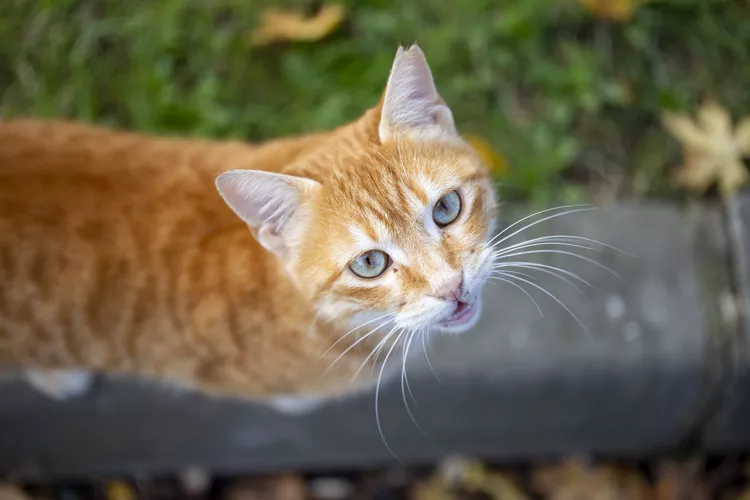Can Cats Eat Grapes?

Grapes are a healthy snack for human; they are juicy, sweet, and almost irresistible. It has long been known that grapes are toxic to dogs, but what about cats? Can cats safely eat grapes?
Can Cats Eat Grapes?
There is much more research pertaining to dogs and grapes, as well as more documented cases of toxicity. However, cats can also become ill after ingesting the fruit. Illnesses seen in cats after eating grapes are typically related to the gastrointestinal tract, such as vomiting or diarrhea, but there have been reports of more serious issues, such as kidney failure.
In dogs, recent research has led scientists and veterinarians to believe that the tartaric acid in grapes could be the reason for their toxicity in pets.
Whether cats are as sensitive to tartaric acid, and therefore grapes, like dogs, is not completely known at this time. Some cats have suffered a gastrointestinal upset after ingesting this sweet fruit, and more serious problems such as kidney failure have also been reported. Kidney failure is the reason why grapes are so dangerous to dogs, and this condition can potentially be life-threatening. This is why it’s so important to completely avoid feeding grapes to your pet.
Grapes Are Not a Good Snack for Cats
Toxicity aside, grapes are probably not the best choice for a cat snack. First, cats are nutritionally classified as obligate carnivores, which means their diet should consist of mostly meat. If cats eat too many fruits, vegetables, or grains, they likely won't be hungry enough to consume an adequate portion of cat food.
Additionally, it has been shown that cats lack sweet taste receptors, which means they will not be able to taste grapes as we do and will likely not enjoy them. There are definitely safer and more tasty treats for your feline friend.
One more reason to keep your grapes out of the reach of your cat is that due to their small, round shape; they can be dangerous choking hazards. Choking on grapes often occurs when the cat is trying to rapidly ingest the fruit, especially if they are sneaking it off of the table or counter.
What Will Happen If a Cat Eats Grapes?
Often, the predominant issue seen in cats that have eaten grapes is gastrointestinal upset. The cat may vomit, experience stomach pain, and have diarrhea. Toxicity resulting in kidney failure is a possibility as well. Clinical signs you may observe in your cat after grape ingestion include:
- Vomiting
- Diarrhea
- Stomach pain
- Decreased appetite
- Drinking more water than usual
- Feeling unwell
If your cat has eaten grapes, you should take them to the nearest veterinarian as soon as possible. It is not recommended to wait for clinical signs to appear as early intervention drastically improves prognosis. If your cat's kidneys are damaged, the condition may be serious or even fatal.
Cat Cats Eat Raisins?
Raisins also contain tartaric acid and may also cause gastrointestinal upset as well as kidney failure. It is also important to bear in mind that raisins are found in many cookies, bread, and other dishes that your cat may eat. Any food that contains raisins should be kept out of the reach of your cat.
How to Keep Grapes Away From Cats
Cats can be sneaky, and they may find and eat grapes and raisins before you know. The best advice is to make sure any of these fruits are put away in a cabinet or the refrigerator so your cat cannot access them. Be aware that due to the agility of cats' paws, many are able to open cabinet doors. You may need to "baby proof" doors to keep your cat out.
Especially for raisins, always ensure that products containing them are kept out of your cat's reach. If you are going to share your meal with your cat, make sure you are aware of all of the ingredients before giving them any. To learn what other foods can be dangerous and should be avoided in cats, read our article here: 5 Common Foods in Your Pantry That Are Not Safe For Your Pets.